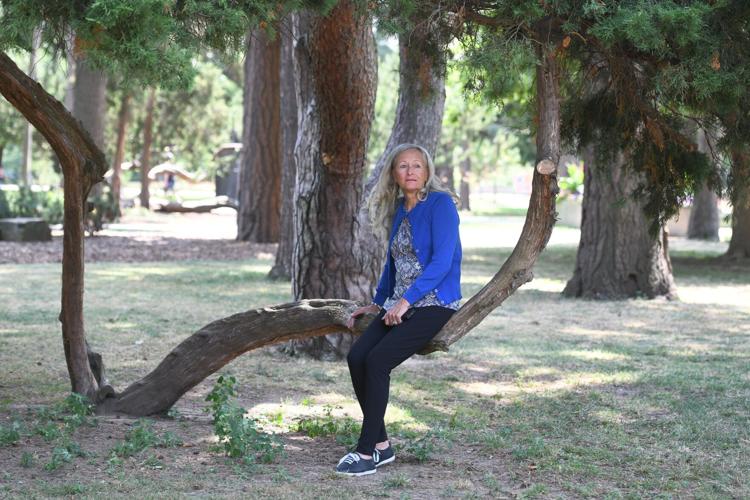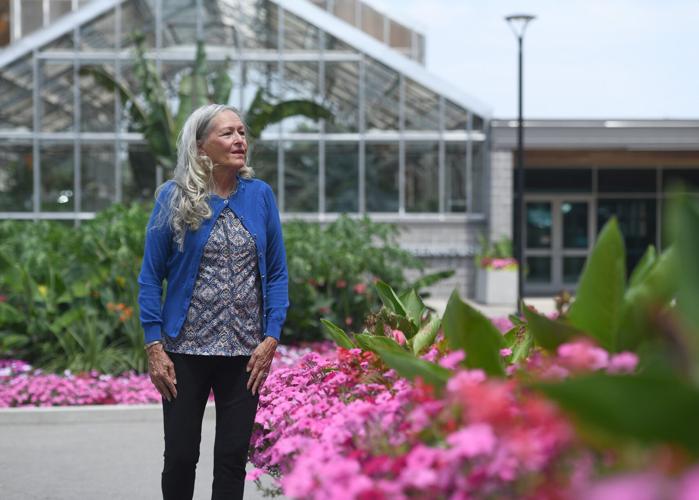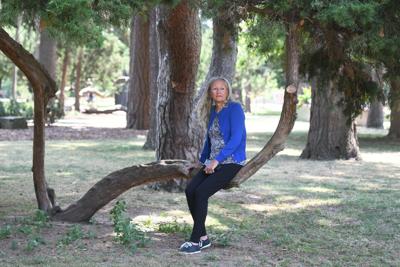Phyllis Fehr waited five years to get diagnosed with AlzheimerŌĆÖs disease.
When that day finally came, she remembers how her doctor looked past her, didnŌĆÖt speak to her, and told her husband ŌĆ£Bring her back when she canŌĆÖt dress herself.ŌĆØ
Speaking from her home in Hamilton, Fehr recalled that moment.
ŌĆ£ItŌĆÖs very dehumanizing,ŌĆØ Fehr said.
ŌĆ£You feel like ŌĆśOh my God, maybe I am worse than I think I am. Maybe I canŌĆÖt make decisions ŌĆ” it makes you question absolutely anything and everything that happens.ŌĆØ
ItŌĆÖs an experience that is all too common for people with dementia in Canada, who are often left to fend for themselves┬Āand are forced to navigate a fragmented pathway to treatment and care, according to a new report by the Brainwell Institute. Canada is falling behind other countries in supporting people with dementia, from prevention to diagnosis to end-of-life care, says the report,┬Ācalled “Mind the Gap┬ĀŌĆö Closing the Care Divide for Canadians with Dementia.”
Canada was the last country in the G7 to release a national dementia strategy, in 2019┬Āand the average wait time, from the onset of symptoms to receiving a formal diagnosis, is 21 to 28 months ŌĆö among the longest in the G7. In contrast, the average wait time for a cancer, heart disease or diabetes diagnosis is measured in days or weeks, the report says.
One of the overarching issues is that thereŌĆÖs no co-ordinated system┬Āfor dementia care in Canada, forcing patients and caregivers to steer through a ŌĆ£confusing maze of waitlists, untrained providers and scattered services,ŌĆØ the report says.
ŌĆ£The physicians and the system itself are not trained to recognize what these symptoms mean and how to pursue a diagnosis for it,ŌĆØ said Saskia Sivananthan, a neuroscientist who co-authored the report and co-founded the Brainwell Institute.
Patients and families with young-onset dementia often face additional stigma, skepticism and reluctance to diagnose from doctors, causing them to go through long wait-lists and a revolving door of specialists as their condition deteriorates. Part of this is because dementia is still often seen as an ŌĆ£older personŌĆÖs disease,ŌĆØ Sivananthan said.
ŌĆ£People are really left to figure things out for themselves,” Sivananthan said.┬Ā“And that’s not how a system should be set up for a disease like this.”
The stakes are high. Dementia is one of the top 10 leading causes of death in Canada, and with an aging population, the number of Canadians living with dementia is expected to rise from 770,000 to nearly one million in five years.┬ĀDementia is a group of symptoms caused by various underlying conditions, marked by cognitive decline, with Alzheimer’s disease being the most common.┬Ā
ŌĆ£WeŌĆÖve hit the tipping point already and thereŌĆÖs no going back,” Sivananthan said.
The lack of supports is taking a tremendous toll on caregivers, who are predominantly women and are often forced to cut their work hours, take leave, retire or abandon their career altogether, according to the report.
When Katie KondorosiŌĆÖs father, David, was diagnosed with young-onset dementia at 58, she says it turned their lives upside down, emotionally and financially. She was 19 and later abandoned a catering business she was running to become a full-time caregiver.
Her father lost his job, her family tore through their savings, and her mother eventually had to sell their home of 25 years to help manage their finances.
While her fatherŌĆÖs diagnosis was devastating, trying to get help was also disheartening and frustrating, she said. She said she learned more about young-onset dementia from social media than from health professionals.
She said it was hard to get a clear answer from physicians. Her family visited three neurologists over a year and it took two years before her father was finally diagnosed. She learned ŌĆö online ŌĆö┬Āabout the Alzheimer Society of Canada, which she said was tremendously helpful.┬Ā
ŌĆ£I felt really, really disappointed and let down by the sheer amount and quality of information that I was getting from everywhere except the health-care system.”
Fehr, the woman from Hamilton, started experiencing symptoms at 48. She was having a harder time with multitasking┬ĀŌĆö she couldnŌĆÖt cook two dishes simultaneously without one burning┬ĀŌĆö as well as challenges with reading, writing and keeping appointments.
Early on, her doctor was unconvinced she might have dementia, and wanted to rule out menopause, depression and other conditions. Eventually, she had to lie about having migraines to see a neurologist.
ŌĆ£I feel like I have had to fight for every little thing,ŌĆØ she said.
Once she was diagnosed, it took another five years for her to get into speech and language therapy.

Phyllis Fehr is pictured with her husband Tom in Hamilton.
Cathie Coward/Hamilton SpectatorAt 66, Fehr is lucid, articulate and actively involved in her grandchildrenŌĆÖs lives, which she attributes to therapy, changing her diet and staying physically, mentally and socially active. But she had to take many of those steps on her own.
The report draws a distinction between CanadaŌĆÖs approach to supporting people with dementia compared to patients with cancer and stroke, who benefit from comprehensive systems that quickly connect them with treatments such as occupational therapy, speech and language therapy and physiotherapy.
ŌĆ£People with dementia donŌĆÖt have that care pathway,” Fehr said. “So we are left floundering.”
For cancer and stroke patients,┬Ā Canada established national, independent bodies that create benchmarks and track progress and co-ordinate services among different levels of government, health-care systems and hospitals. It has made a measurable difference for people with those conditions.
It shows that change is possible.
ŌĆ£We have done well for stroke and cancer. In fact, we’re the leaders in those spaces,ŌĆØ Sivananthan said. ŌĆ£So it’s very conceivably possible, but the political will and the co-ordination needs to be there.ŌĆØ
The report calls for Canada to establish a national implementation plan for its dementia strategy, to create a Canadian Dementia Co-ordinating Body to ensure consistency across provinces and territories, to set measurable goals, monitor progress and to commit to long-term, sustainable funding. ┬Ā

































To join the conversation set a first and last name in your user profile.
Sign in or register for free to join the Conversation